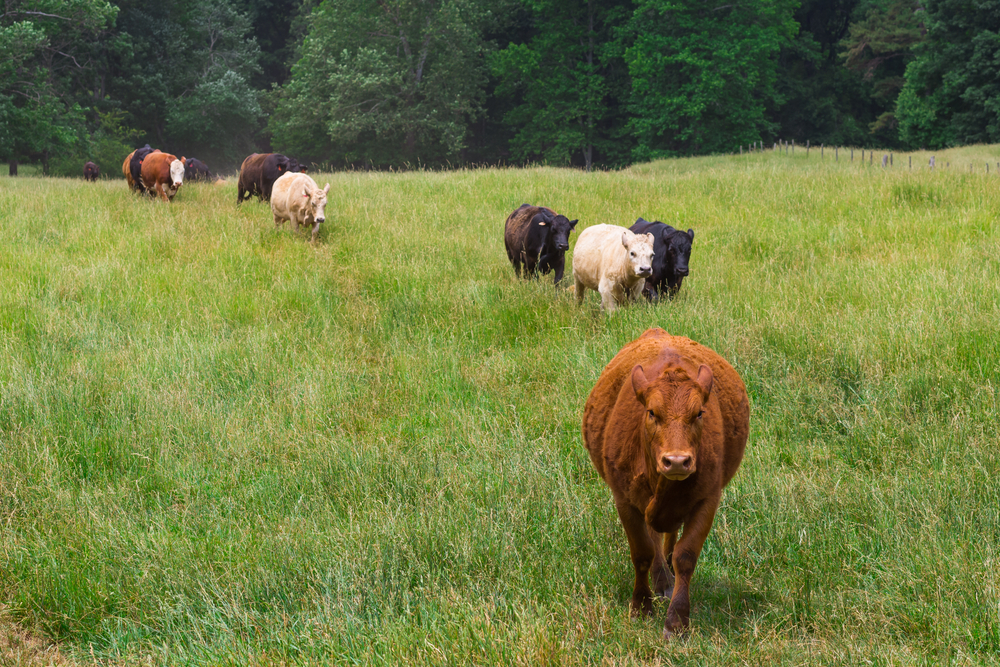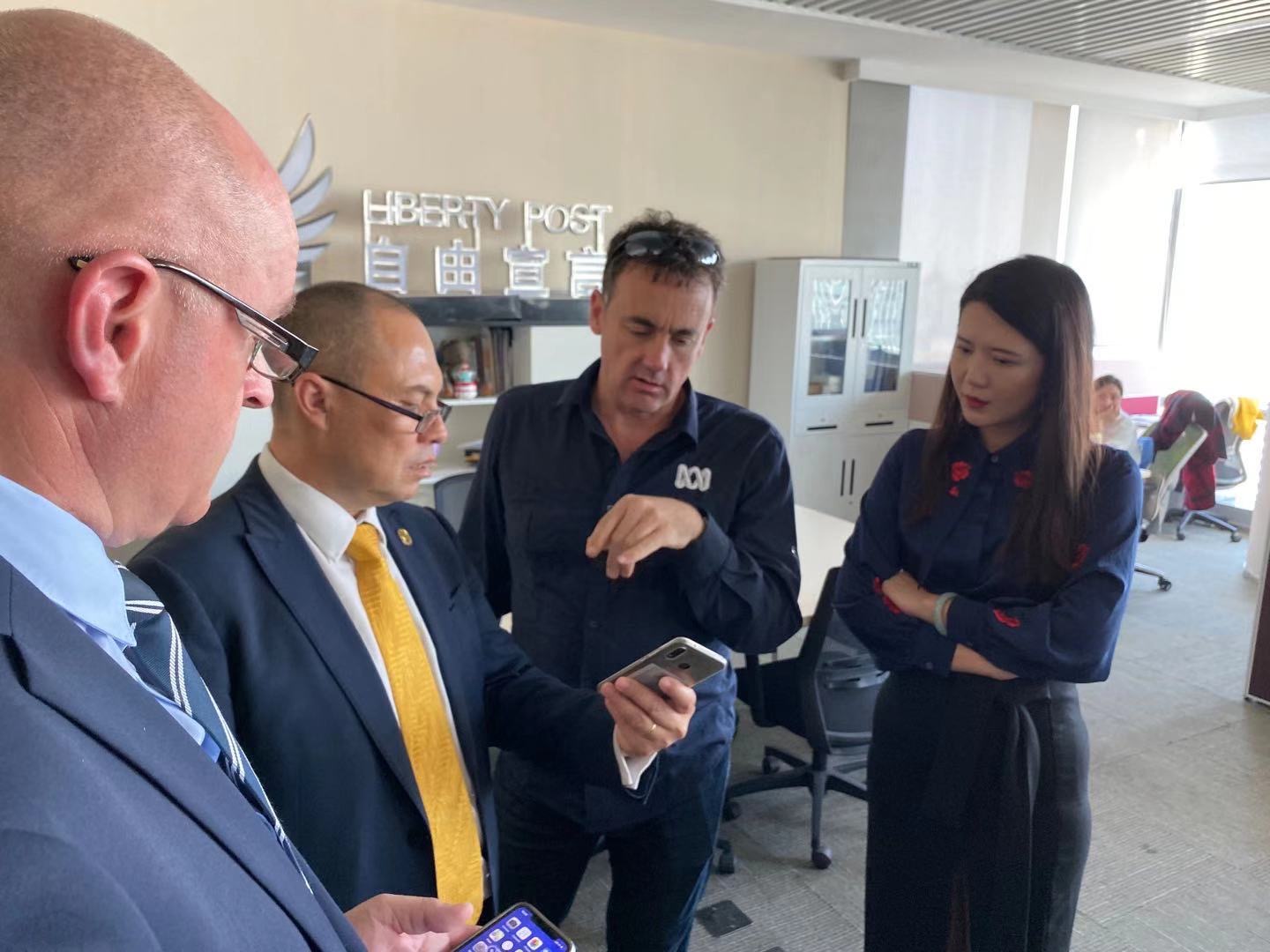New CRC partner BeefLedger, with its expertise in blockchain technology and hands-on experience in the Chinese market, will be a boon to participants looking to export premium high-value food products. And that doesn’t just mean beef.
Driven by a belief that consumers and all supply-chain participants can benefit from greater transparency and streamlined transactions, research-driven tech company BeefLedger is ready to put lessons learned in the beef supply chain to good use in the Future Food Systems CRC.
With food safety and fraud concerns huge issues, especially in countries such as China, Australia’s reputation as a premium producer of ‘clean, green’ produce – including high-grade beef – means our food products are highly regarded and increasingly sought-after by millions of Chinese consumers.
And BeefLedger, with its extensive industry and research credentials and expansive, trusted network in China, is ideally positioned to help companies seeking to export effectively into this vast and growing market.
BeefLedger’s core team has spent several years developing and commercialising an integrated blockchain-enabled beef provenance platform and smart contracting payments regime that streamlines payments and strengthens consumer confidence in product credentialing.
Now, they’re bringing all this and more to the CRC.
Hong Kong-born, Australian-raised company chair Warwick Powell is excited to get on board, and keen to work with fellow CRC participants in developing smart, future-focused food precincts incorporating its systems that can take premium products from Aussie paddocks to Asian plates in the safest, most transparent and efficient way possible.
He’s also interested in working with CRC partners on the development of fast blockchain-enabled delivery systems for time, tamper and temperature-sensitive products such as those for use in personalised medicine and precision nutrition.

BeefLedger Chair Warwick Powell is harnessing the power of blockchain technology to bring greater speed, security and certainty to premium-food supply chains.
From beef to blueberries and precision-nutrition products
Though BeefLedger cut its proverbial teeth on creating systems for ensuring Australia’s premium beef products could justify their high price tags in Chinese markets, Powell assures us that much of this knowledge, and the resulting processes and systems, are easily transferable to other products and markets.
“Our strengths from a company perspective are that we’ve now accumulated experience in the design, development and application of blockchain-related technology for food systems, which is useful in applications for other food systems,” he explains.
“We’ve learned a lot from beef and we can take those kinds of learnings very, very quickly [and use them] to support us in other applications within the supply chain.”
“The beauty of beef is twofold: [one advantage is that] getting it from producer to consumer is a very complex process which involves taking something apart – whereas most supply chains involve putting things together – and a few other layers, such as that it’s perishable, which adds considerations into the equation that for a lot of other things just aren’t there.”
The other advantage of studying the beef supply chain, he says, is that “there’s sufficient economic underpinning to enable early-stage technology to be developed; there’s a business case”.
“As with a lot of these things, you need a critical mass to get the development to a certain point; then eventually it becomes accessible to everyone,” he adds. “And beef has provided that.”
“We’ve been able to address a lot of issues within this supply chain that can now be applied to just about any supply chain.”
Technology and customised food choices
One potential application of the BeefLedger’s blockchain-backed platform is enabling tailored food choices.
“We’re getting a lot of feedback around the nutritional benefits of foods,” Powell says. “And we can see a future where consumers can specify what they’re prepared to purchase.
“That could be driven by private whims, ethical concerns or medically defined nutritional concerns. Provided the information’s there, you can scan that product and it will ask the dataset: ‘Are my personal preferences satisfied by this product profile?’
“If they are, you can buy that product; if not, it may suggest you manually override this – or it may decide, ‘No, you’ve programmed the wallet and one of the security features is ‘No chocolate, Warwick!’ And if that gets overridden, everyone will know it’s been overridden.”

Ensuring provenance from producer’s paddock to consumer’s plate is a key part of BeefLedger’s business.
Integrated provenance
BeefLedger’s integrated provenance, blockchain security and payments platform deploys cutting-edge blockchain technologies to harness a diverse array of product provenance information which, in turn, forms the basis for improved payments and confidence among all supply-chain participants, especially end-consumers.
“When we look at food systems, often the focus is on the production side – but from a systems point of view, we’ve also got to look at what those at the consumer end of the supply chain think and care about,” Powell notes.
“A lot of our work has focused on how to bring the voice of the consumer into our overall systems of production – and though we still need to do some development work, it’s an area in which our learnings can assist others.”
Utilising the BeefLedger platform means that if a product is part of your ‘smart’ chain, consumers can find out “everything they want to know about it”, he explains. “That said, food is ultimately about the consumer, so there’s no point putting in information about a product onto the chain if it’s not of value to them.”
Conversely, producers can track their products right along the supply chain to see how they’ve traversed the journey and where they end up, Powell says – “whether that’s in a restaurant in Beijing or a supermarket shelf in Surry Hills”.
Smoother, more secure transactions and prompt payments
BeefLedger’s team continues to work on reducing what Powell refers to as “information asymmetries” between transacting parties in its supply chains. Which is good news for suppliers sick of waiting to get paid.
“One of the things we’ll be working on next year with our financial and insurance institutions is how streamlining information supports the streamlining of payments – so instead of there being long, drawn-out disputes about people getting paid, we can make that payments process much faster and smoother,” he says.
“The bottom line is that people should get paid when they deliver. So if I can prove to you that what you’ve got is what you ordered, then there’s no reason for you to hold up payments.
Consumer reach across China
The company has much to offer exporters of premium beef and other food and beverage products, especially those keen to tap into the Chinese market.
They include ‘brand-value protection’ solutions integrated to its blockchain technology-based platform, which authenticate product data; market-entry services such as export-import documentation; cold-storage and last-mile distribution capabilities; in-country digital marketing; and ‘direct to consumer’ opportunities via product listings with Beijing-based partner Liberty Post, a new-generation social e-commerce community committed to protecting and promoting authentic, exceptional products and services.
“[Liberty Post’s] platform… enables consumers to become ‘product resellers’, to promote the things they like to their circle of friends in a way that earns them money,” Powell explains.
“The group has officially been operational since the beginning of 2019 but in [less than a year] they’ve grown to a daily active user base of tens of thousands, with a registered community of close to 110,000 users now and growing at around 10,000 users a month.”
That’s a big market.

BeefLedger’s core team and trusted network of contacts across China make them ideal collaborators in projects involving premium exports into the PRC.
Supply-chain and last-mile cold-storage solutions
BeefLedger’s expertise in the field of supply-chain transactions and provenance assurance will also be of help to CRC participants seeking to export high-value food and beverage products efficiently into safety-conscious export markets such as China.
Powell envisages the company collaborating in CRC projects that involve developing streamlined, secure and sustainable supply chains and demonstrating proof of provenance for premium Australian food products. This includes cold-chain solutions that extend to the last mile, he notes.
“One of the projects we have in mind has a number of features – ‘adding steroids’, if you will, to the integration of IoT – or some IoT elements – to the data-gathering process, and adding some logistics to the cold-storage part of the system.
“And not just, say, from Australia to China, but ensuring we add visibility and integrity to cold-chain processes in the last mile as well.
“So how do we ultimately build very simple data-ingestion tools and processes in the blockchain, together with the blockchain ledger ecosystem technologies, that will incentivise the little delivery driver riding around on an electric scooter to pay attention to temperatures of products being distributed – probably the weakest link in the chain at the moment?
“And how do we incentivise end-consumers – which could be, say, a restaurant chain – to also become involved in that process of validation and verification?
“Even if products aren’t rotten, the fact that they’ve been transported in less-than-ideal conditions can affect shelf life – which ultimately affects the economics of the supply chain.”
Aiding in these endeavours is the BeefLedger team’s decades-long involvement in cross-border trade and extensive network of contacts across China.
“From a practical point of view, our range of institutional and commercial connections in the China marketplace could prove very useful to other CRC participants,” Powell says.
For more information, visit the BeefLedger website.


